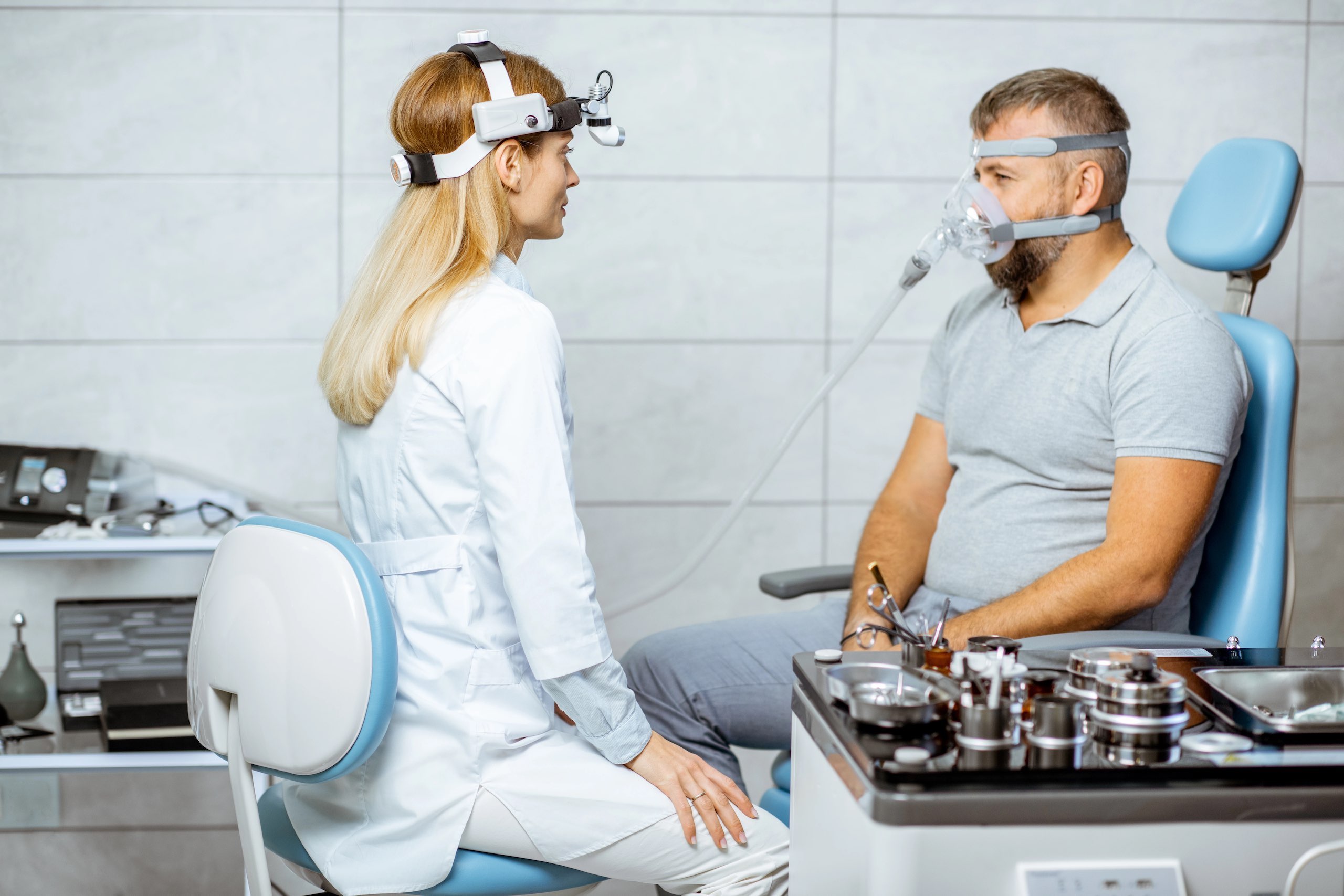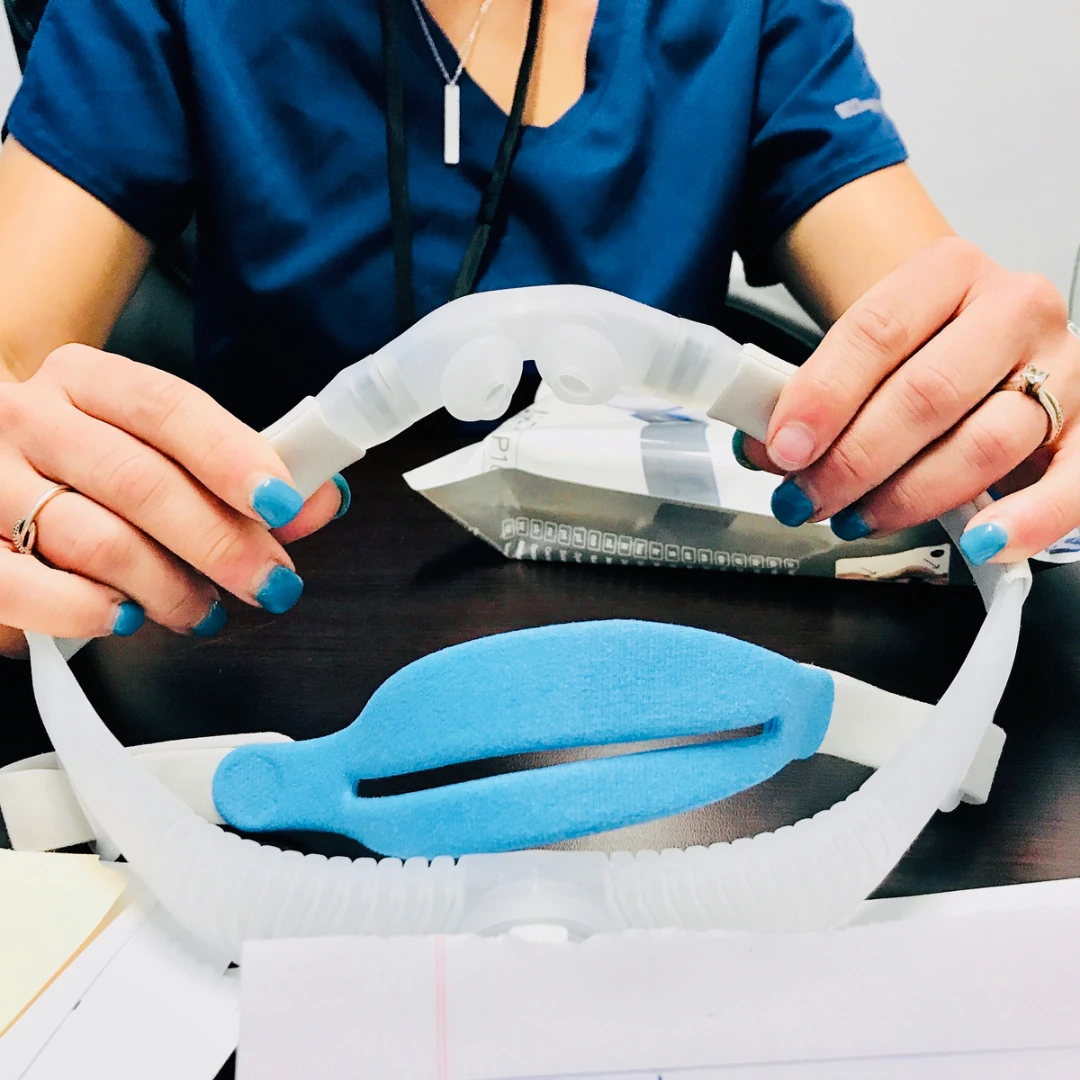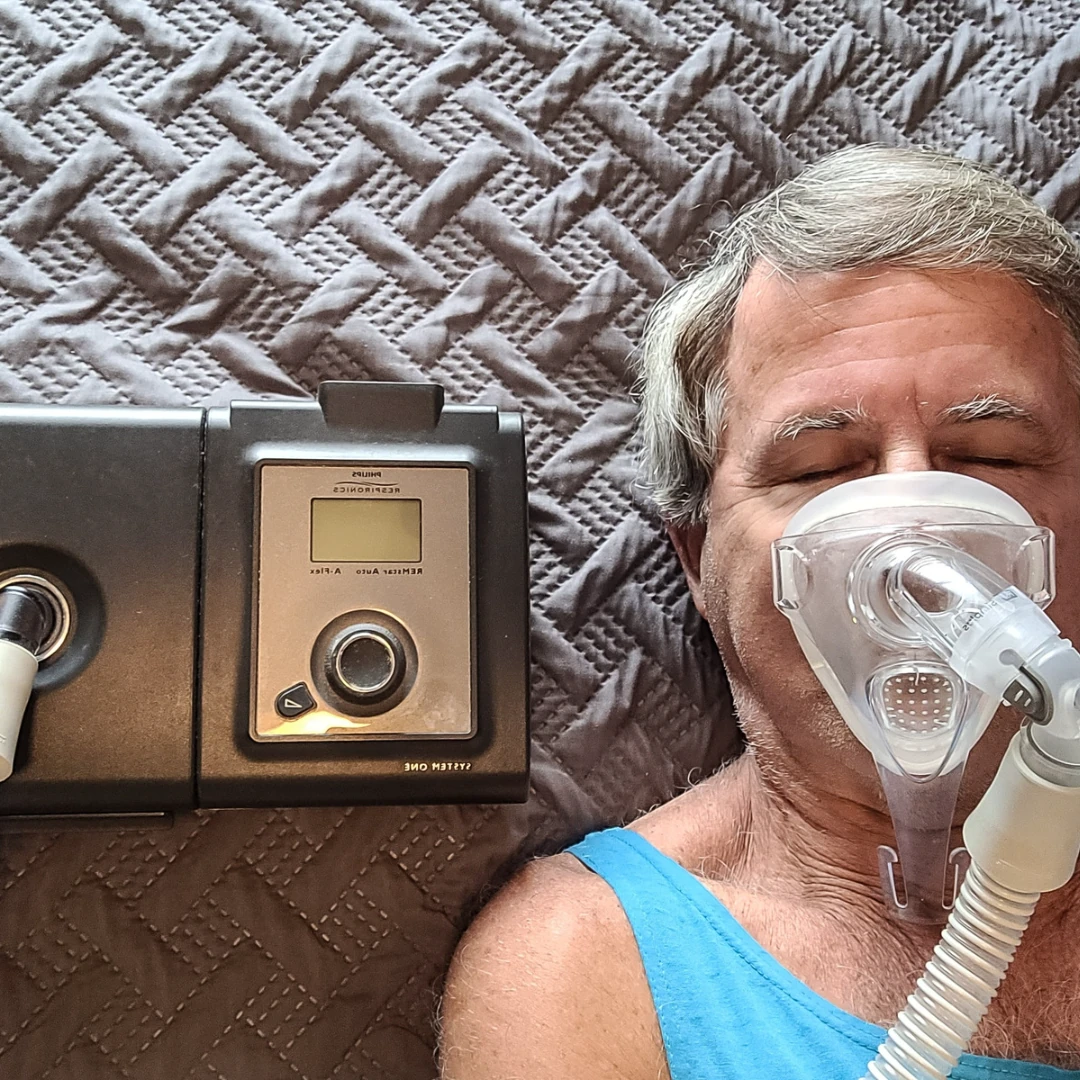Procedures
Obstructive Sleep Apnea

Obstructive Sleep Apnea
OSA is a sleep disorder. When a person with OSA sleeps they have periods during which their breathing stops.
OSA can lead to serious heart problems. It can also cause daytime drowsiness, depression, and difficulty concentrating.

When to Consider OSA Surgery
OSA can lead to variety of potentially severe complications if left untreated. Some specific instances in which you should considering seeing a doctor or an oral surgeon for your OSA include:
- Waking up choking or gasping
- Pauses in your breathing while sleeping
- Considerably loud snoring
- Excessive Daytime drowsiness
Although loud snoring might be a symptom of severe obstructive sleep apnea, it may also be an outcome of other conditions. That’s why we advise that you see a medical professional and a trained oral surgeon to assess your sleep apnea. Contact us today to book an appointment!
Complications of OSA
Despite the severity of your obstructive sleep apnea, it’s considered to be a serious medical condition which can result in some severe complications, including:
- Cardiovascular problems – OSA can lead to increase blood pressure, drops in blood oxygen levels, and can increase the risk of heart disease
- Daytime fatigue – Due to a lack of sound and restful sleep, those with obstructive sleep apnea will often experience severe daytime drowsiness
- Sleep-deprived partners – Loud snoring can affect you and those sleeping around you by also keeping them from getting a good night’s sleep.
- Complications with specific medications – OSA is a concern with specific medications and with general anesthetics. It is important to tell your doctor that you have OSA before a surgery.



Obstructive Sleep Apnea FAQs
I SNORE WHEN I SLEEP – SHOULD I BE WORRIED?
About 40% of people over the age of 40 snore when they sleep, and half of those snore every night. In most cases, snoring is merely inconvenient. However, for some people, it may be a symptom of OSA , which is very serious if you do not seek out treatment. If you are experiencing symptoms such as daytime drowsiness, snoring with pauses in breathing, gasping or choking during sleep, restless sleep, problems with mental functions, or lack of focus this could mean you are suffering from obstructive sleep apnea.
Contact Argyle Associates if you have any questions about obstructive sleep apnea.
WHO SUFFERS FROM OSA?
OSA can be caused by dentofacial abnormalities. OSA in these patients is not related to age, gender, or health. Most often, however, OSA is seen in male patients who are middle age, obese and have at least two other chronic diseases. 24% of men and 9% of women aged 30-60 suffer from obstructive sleep apnea.
If you are suffering from OSA due to a dentofacial abnormality, contact Argyle Associates today to learn more about how our Oral & Maxillofacial Surgeons can help you.
HOW IS OSA TREATED?
There are two main non-surgical treatments for OSA:
- A mechanical device called a Continuous Positive Airway Pressure (CPAP) machine. This machine is used to keep the airway open during sleep.
- A mouthpiece that keeps the jaw forward during sleep may also be prescribed.
For some patients, CPAP treatment is not effective for treating their obstructive sleep apnea. If mouthpiece options are not sufficient, surgical options are available. If you have tried other OSA treatments and they have not been successful, contact Argyle Associates for more information on obstructive sleep apnea surgery.
WHAT IS INVOLVED IN OSA SURGERY?
Surgery is considered only after all the risks, benefits, and alternatives are understood. For example, the Ottawa Surgical Sleep Apnea clinic will consider OSA surgery only if the patient has completed a trial of CPAP.
There may be one or several causes of apnea. The surgery must match the problem or problems. For example, surgical treatments can address issues with the nose, palate, tongue, jaw, neck, obesity, or several of these at the same time.
WHAT IS ARGYLE ASSOCIATES’ EXPERIENCE WITH ORTHOGNATHIC/TELEGNATHIC SURGERY?
Argyle Associates’ Oral & Maxillofacial Surgeons have significant experience diagnosing and treating sleep apnea.

